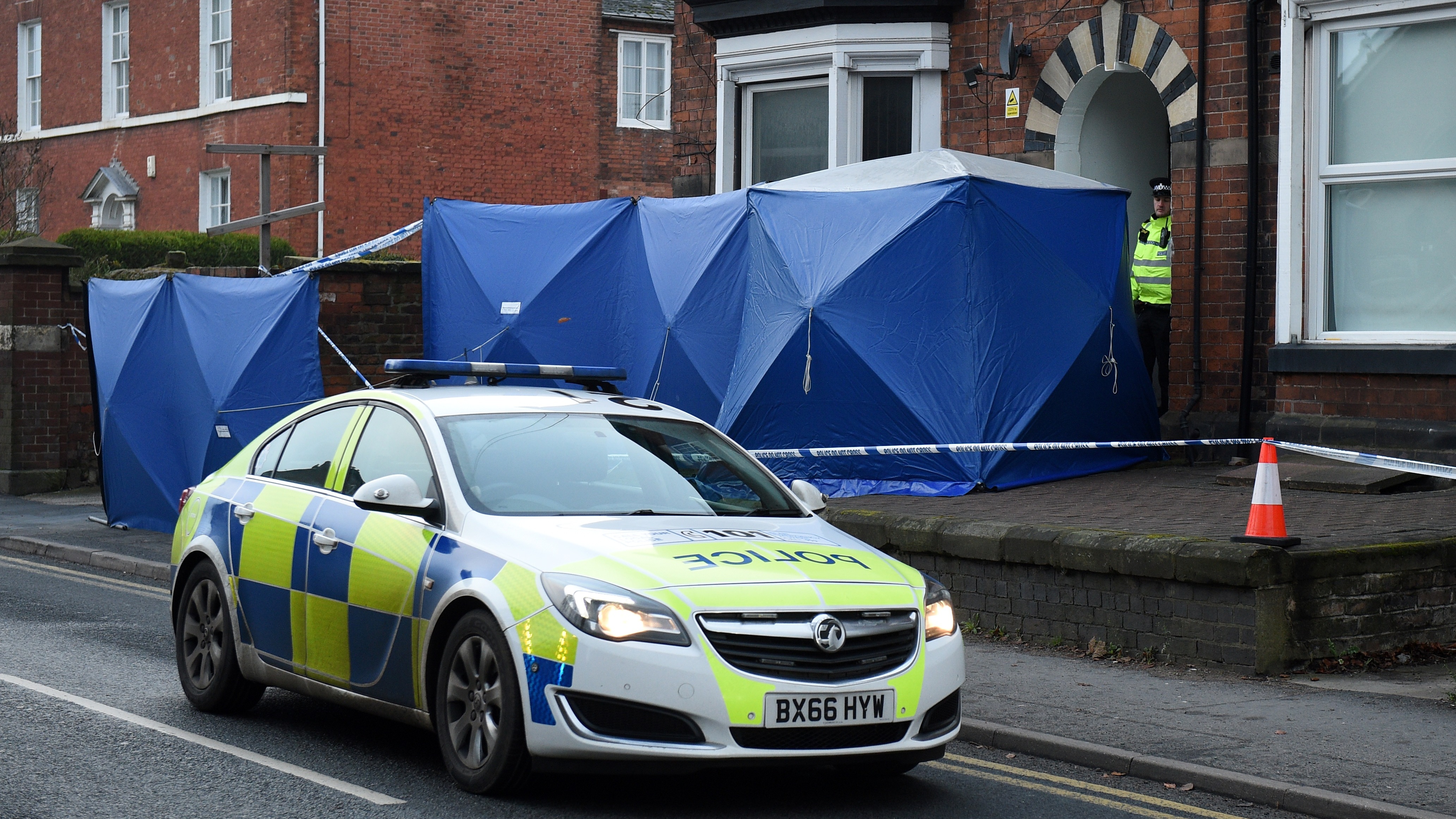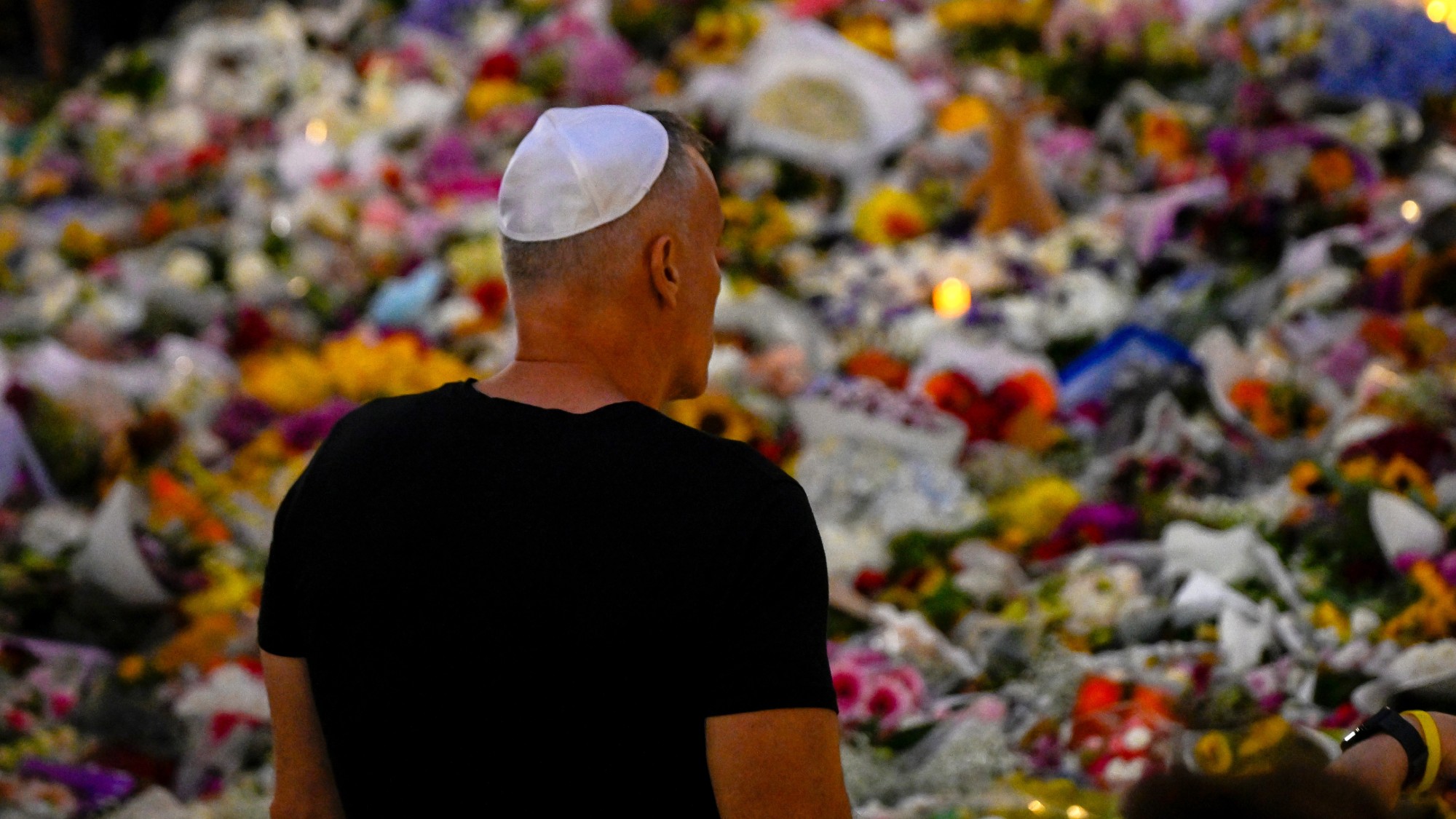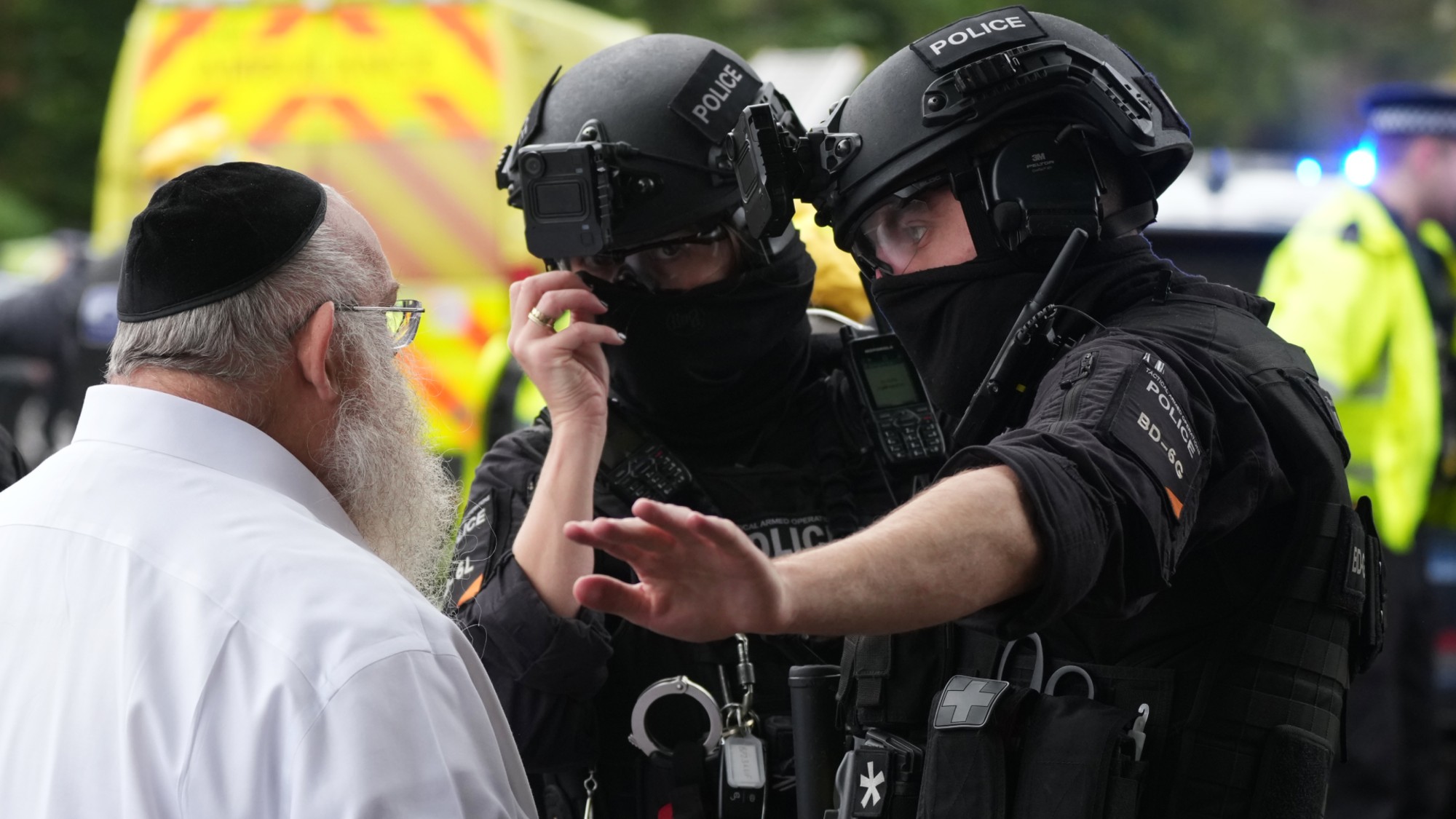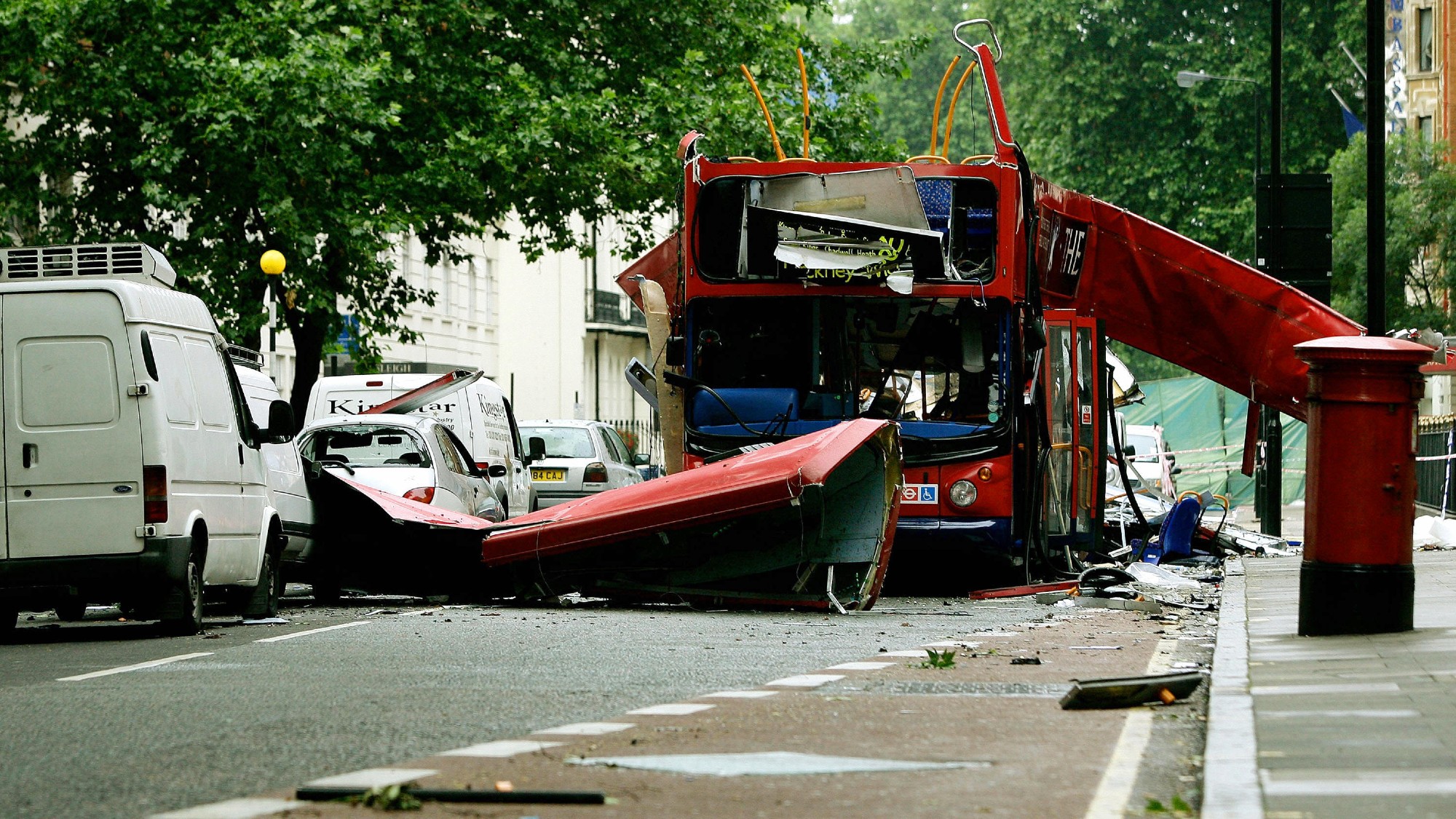London Bridge attack: who are the 69 terrorists freed early?
Two ‘violent jihadists’ already returned to jail as police check licence conditions

A free daily email with the biggest news stories of the day – and the best features from TheWeek.com
You are now subscribed
Your newsletter sign-up was successful
A total of 69 “violent jihadists” released from prison early will have new licence conditions imposed on them as a result of the London Bridge knife attack.
Two convicted terrorists have already been returned to prison since Friday’s fatal attack, with more expected to follow in the coming days.
Who are the 69 terrorists?
The Week
Escape your echo chamber. Get the facts behind the news, plus analysis from multiple perspectives.

Sign up for The Week's Free Newsletters
From our morning news briefing to a weekly Good News Newsletter, get the best of The Week delivered directly to your inbox.
From our morning news briefing to a weekly Good News Newsletter, get the best of The Week delivered directly to your inbox.
The former prisoners have all been convicted of violence-related terrorism offences and are “some of the most notorious terrorist figures in the country”, says The Telegraph.
They include members of the banned al-Muhajiroun group led by hate preacher Anjem Choudary.
On Monday, former Choudary associate Nazam Hussain was arrested by police in Stoke-on-Trent on suspicion of preparing acts of terror. He had been jailed alongside Usman Khan, the London Bridge attacker, in 2012. The pair were released on licence last December.
Another prisoner, Yahya Rashid, is also back in custody after police discovered he had been hiding a phone from authorities, in breach of his licence conditions. Rashid was jailed in 2015 after attempts to travel to Syria to join Isis.
A free daily email with the biggest news stories of the day – and the best features from TheWeek.com
Rashid was released from prison last year – halfway through his five-year sentence – on the condition that he informed police of any changes to personal details, including phone numbers and email addresses. But a search of his home discovered a secret iPhone and email address he hadn’t declared.
The remaining 67 terrorists will all be visited by police, who will assess whether they have breached any of their existing licence conditions.
And many more terror suspects will be scrutinised more closely. Police, intelligence services and probation chiefs are set to examine files of another 150 known terror suspects, says The Times.
This group includes inmates who are approaching release, and suspects who were arrested under terrorism laws but ultimately convicted of lesser offences and are now free.
–––––––––––––––––––––––––––––––For a round-up of the most important stories from around the world - and a concise, refreshing and balanced take on the week’s news agenda - try The Week magazine. Start your trial subscription today–––––––––––––––––––––––––––––––
What are the new conditions?
The new conditions will further curtail the movements of extremists, as well as imposing tighter curfews.
They will have limits put on the people they are allowed to associate with, and there will be bans on speaking at or attending events like the one where Khan committed his attack.
Every terrorist prisoner on licence will meet their probation team and have their current restrictions reviewed.
Ministers will consider restrictions “case by case”, with conditions including “possible bans on visiting towns and cities and a prohibition on using the internet on any device”, says the Times.
Any breaches of licence conditions would lead to a return to jail.
-
 Local elections 2026: where are they and who is expected to win?
Local elections 2026: where are they and who is expected to win?The Explainer Labour is braced for heavy losses and U-turn on postponing some council elections hasn’t helped the party’s prospects
-
 6 of the world’s most accessible destinations
6 of the world’s most accessible destinationsThe Week Recommends Experience all of Berlin, Singapore and Sydney
-
 How the FCC’s ‘equal time’ rule works
How the FCC’s ‘equal time’ rule worksIn the Spotlight The law is at the heart of the Colbert-CBS conflict
-
 How the ‘British FBI’ will work
How the ‘British FBI’ will workThe Explainer New National Police Service to focus on fighting terrorism, fraud and organised crime, freeing up local forces to tackle everyday offences
-
 How the Bondi massacre unfolded
How the Bondi massacre unfoldedIn Depth Deadly terrorist attack during Hanukkah celebration in Sydney prompts review of Australia’s gun control laws and reckoning over global rise in antisemitism
-
 Who is fuelling the flames of antisemitism in Australia?
Who is fuelling the flames of antisemitism in Australia?Today’s Big Question Deadly Bondi Beach attack the result of ‘permissive environment’ where warning signs were ‘too often left unchecked’
-
 Ten years after Bataclan: how has France changed?
Ten years after Bataclan: how has France changed?Today's Big Question ‘Act of war’ by Islamist terrorists was a ‘shockingly direct challenge’ to Western morality
-
 Arsonist who attacked Shapiro gets 25-50 years
Arsonist who attacked Shapiro gets 25-50 yearsSpeed Read Cody Balmer broke into the Pennsylvania governor’s mansion and tried to burn it down
-
 Manchester synagogue attack: what do we know?
Manchester synagogue attack: what do we know?Today’s Big Question Two dead after car and stabbing attack on holiest day in Jewish year
-
 The Miami Showband massacre, 50 years on
The Miami Showband massacre, 50 years onThe Explainer Unanswered questions remain over Troubles terror attack that killed three members of one of Ireland's most popular music acts
-
 The failed bombings of 21/7
The failed bombings of 21/7The Explainer The unsuccessful attacks 'unnerved' London and led to a tragic mistake